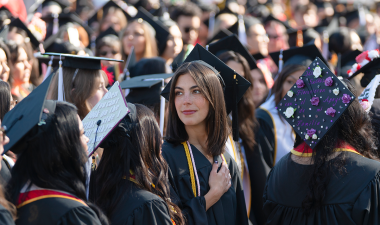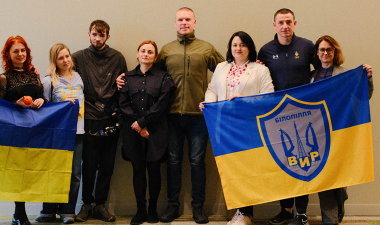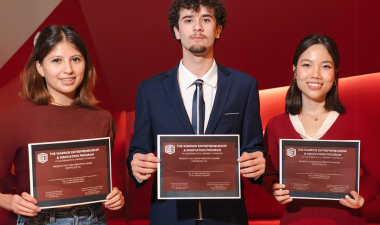Part of her role as interim chair of the Stanislaus State Ethnic Studies Department is organizing the annual Ethnic Studies Conference, and Associate Professor Mary Roaf is fully prepared.
Department colleagues are dedicated to creating programs related to their specific fields, leaving the chair to organize the broader Ethnic Studies Conference.
Roaf chose “Decolonial Spiritualities, Healing and Social Justice” as the theme for Thursday’s virtual event from 5-7 p.m., building on the department’s core value of healing.
“It's the fulcrum around which everything else revolves,” Mary Roaf said of the heart of her department’s mission. “The origins of ethnic studies, the decolonial curriculum, means we have long histories and long futures. Our histories pre-date by thousands of years, colonization, genocide, chattel slavery and white supremacy that exists to the current day. History will long endure past this system because it’s not sustainable.”
She didn’t have to look far for speakers who could share messages of healing. In addition to fellow scholars, artists and activists Trinity Ordona, Javier Perez Robles and Victor Manuel Escotto, Roaf invited her sister, Phoebe Roaf.
Phoebe Roaf is the first Black person and first woman to be elected bishop of The Episcopal Diocese of West Tennessee.
While the other speakers will share different approaches to healing, including ancient practices and plant-based traditions, Phoebe Roaf’s spiritual theology is more traditional.
Still, her approach mirrors that of her younger sister’s.
“We have a lot of conversations about our systems-building and systems-change work,” Mary Roaf said.
Phoebe Roaf did not set out to be a church leader, although as a young person she was active in the Episcopal Church. That the four Roaf children attended the church of their mother as fourth-generation Episcopalians instead of the Southern Baptist church of their father in Pine Bluff, Ark., is a reflection of their mother’s determination.
Phoebe Roaf was a young church leader and even served one year as president of the youth’s annual conference. “I was the child whose ancestral African American and Native American, pre-Christian, pre-colonization lineage always spoke to me, so I was into mysticism and folklore and mythology,” Mary Roaf said. “I resisted going to church. I was the heathen out of the bunch in Southern Bible Belt terms.”
But she always looked up to her sister, and when Mary was 12, Phoebe allowed Mary to join her and her high school friends at their gatherings and parties.
Phoebe Roaf left home and earned her undergraduate degree from Harvard University, her master’s in public policy from Princeton University and worked in the governor’s office of Virginia and for a nonprofit public policy organization in Philadelphia before pursuing law. That was the profession of her mom, who was the first Black woman appointed to the Arkansas Supreme Court.
Phoebe attended the University of Arkansas, Little Rock and clerked for a federal judge in New Orleans before going to work for a prestigious law firm there. She worked in real estate law and knew it wasn’t for her. She resumed church work, attended Virginia Theological Seminary and became an Episcopal priest and ultimately, a bishop.
Mary Roaf and her brothers followed their sister’s lead and went to college.
Mary Roaf dreamed of being a diplomat when she attended Georgetown University as an undergraduate but fell into teaching. She later sought to work in setting K-12 policy, following in the footsteps of her dad, a dentist who for years was elected to the school board in his hometown, where he had attended segregated schools growing up. He, too, wanted to help set policy.
While working toward her doctorate, Mary Roaf interned at the same public policy organization where her sister once worked in Philadelphia.
After a few years, Mary Roaf realized the field wasn’t any more fulfilling for her than law was for her sister, and she found her present career as an associate professor in higher education.
She and her sister share similar ideals and are both committed to helping and healing and working with others for the good of all.
Like the 12-year-old girl excited to finally be allowed to tag along, Mary Roaf remains inspired by her big sister.
“She’s a committed, authentic religious leader, a systems-change agent within the institution of the church and a true visionary and exemplary leader at every level,” Mary Roaf said. “We are continuing this legacy of collaboration, and I am bringing her into my work and my world in a synergistic and intentional and conscious way.”



